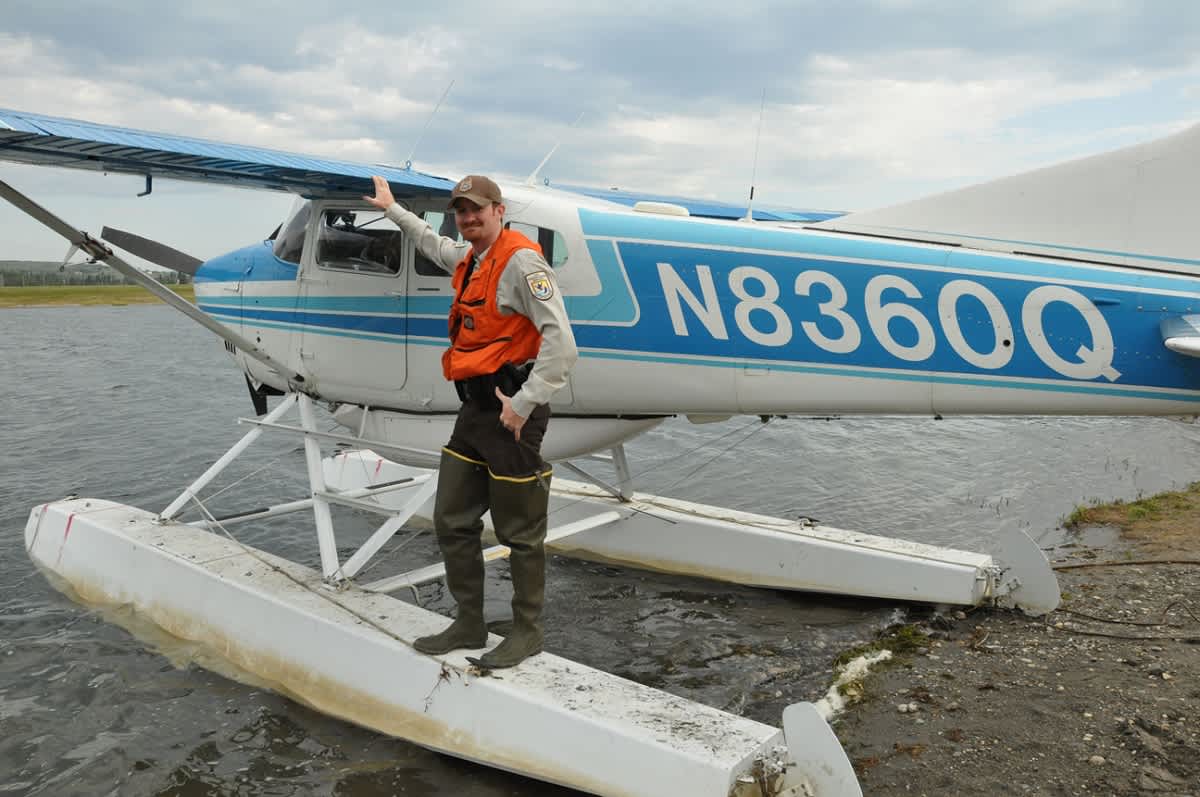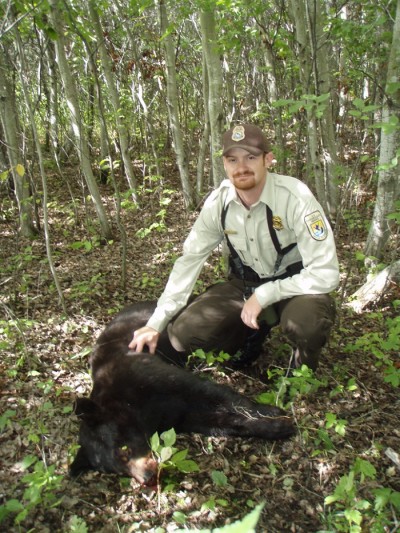On the Front Lines with the Thin Green Line
Josh Wolfe 09.17.14

Federal game warden Brandon Jones lies motionless in the steely gray of dawn, the frozen Louisiana ground hard beneath him. It’s cold, unseasonably so. The weeks leading up to the deer opener permeated sultry summer air throughout the Southeast, and a front from the north had only moved in the evening before—the night he was supposed to stake out an area where a lock-on stand hung over a pile of corn.
Four days prior, on a Tuesday, Jones and another warden came across a trail camera placed deep in the woods. A quick check of the SD card revealed a large buck. They erased all evidence of their presence and left the area. The plan was simple: walk in by the light of the moon on Friday night dressed in ghillie suits, and wait until the perpetrator showed up the next morning. He did. Through stiff muscles both wardens rose from the ground and made the arrest. Interestingly enough, the buck he was after was killed by an unsuspecting 12-year-old on his first hunt the next weekend, a mile away from the baited area.
State wildlife officer Mark McNeese, of Tennessee, leads four officers onto a farm on opening day of dove season. This particular farm hosts a large hunt each year. Upon arriving to the main field, McNeese and the other officers find it virtually empty, a light cloud of dust hovering about. Dove stools sit vacant and condensation drips from the cans of drinks only recently opened. Freshly-spent hulls rest in silence around the stools and a few feathers drift past in the light breeze. Obviously something is amiss and the nearby woods, just across the field from where McNeese stands, look awfully inviting to anyone hunting illegally.

He orders his fellow wardens to the head of the field and leaves to seek out the landowner. “Call out them rabbits or the dogs are on the way, and I’ve got all the time in the world,” he says firmly but calmly. When the “rabbits” reemerge, none of whom have licenses, he looks into the faces of the young men. None look threatening; none make a case that they flagrantly object to the laws of animals or men. He writes them each a ticket for the cost of a license, doesn’t apprehend their shotguns as he could, and leaves the farm. The men, who have never been in any real trouble in their lives, take this lesson deep into heart and vow to never break a game law again.
And these are just a few examples. I’ve personally met game wardens, known as “the thin green line,” across this country who are the antithesis of what we perceive a “typical bad cop” to act like. Most wildlife officers are gracious and congenial, even affable at times; especially among like-minded hunters who care about the animal or fish they are pursuing and have a general interest in conservation because they themselves are hunters and fishermen and like to know how the day has been, and where you might go if you haven’t.
But there is also a side most of us aren’t aware of. Would you believe that there are only about 300 federal game wardens like Brandon Jones in this country? He now lives in Nebraska and in that state alone there are 48 wildlife officers. Forty-eight! That’s one officer to every 1,600-plus square miles of the state, which is just north of 77,000 square miles. According to Jones, the majority of the nation’s green men are located in the densely populated east where hunting is not as prevalent. Why?
It has also come to my attention that the fight to protect wildlife by our officers is not here in the homeland, but abroad. At the rate Africa is losing its elephants, the United States government is sending its wildlife officers to the Dark Continent to help combat ivory poachers. Another flaw in foreign policy?
In my home state of Tennessee, we have roughly two game wardens per county. It’s the same with Alabama. As a federal officer, Jones has been called to work in nearly all 50 states. And wouldn’t you know—he loves it. The reason I know is this: Brandon and I grew up together, went to Auburn and lived in the same house for three years (yeah, he’s an overachiever), and have remained best friends through the worst weather. He’s one of the few people in this world who I’ve seen pick a path at the age of 16 and stick to it. While there’s not much glamour in the everyday grind of being an officer of the law (particularly wildlife in the far reaches of the Midwest), he’s outside most of the day, around the animals he loves and the men and women he entrusts to abide by the law. Must be something to walk around with knowing nearly all of your subjects carry a gun.
We need more people like Brandon and Mark and you. If your son or daughter or even you, dear reader, is looking for a change, it’s not too late. And me, you ask? Well, for a free-spirited writer it may not be so, for at times he’s not such a great test taker, just a puzzler of words. Let’s just say I’ll hold up my end of the bargain by purchasing a license everywhere I hunt and fish.

